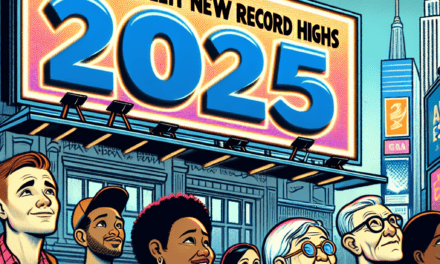FTC Upholds Tougher Merger Rules Established During Trump Administration
The Federal Trade Commission (FTC) has recently reaffirmed its commitment to the stricter merger rules that were established during the Trump administration. This decision has significant implications for businesses, consumers, and the overall competitive landscape in the United States. In this article, we will explore the context of these merger rules, their impact on various sectors, and the broader implications for antitrust enforcement in the U.S. economy.
Understanding the Context of Merger Regulations
Merger regulations are designed to prevent anti-competitive practices that can arise from corporate consolidations. The FTC, along with the Department of Justice (DOJ), is responsible for enforcing antitrust laws in the United States. The rules governing mergers have evolved over time, reflecting changes in economic conditions, political ideologies, and public sentiment regarding corporate power.
During the Trump administration, the FTC adopted a more aggressive stance on mergers, particularly in industries where market concentration was already high. This shift was characterized by a focus on preventing mergers that could potentially harm competition, even if they did not meet the traditional thresholds for antitrust violations. The new rules emphasized the importance of maintaining a competitive marketplace, particularly in sectors such as technology, healthcare, and telecommunications.
Key aspects of the tougher merger rules include:
- Increased scrutiny of horizontal mergers, where companies at the same level of the supply chain combine.
- Heightened examination of vertical mergers, which involve companies at different stages of production.
- Stricter guidelines for assessing market share and potential anti-competitive effects.
- Greater emphasis on the potential for harm to consumers, including price increases and reduced innovation.
- Enhanced transparency requirements for companies seeking to merge.
The Impact on Major Industries
The enforcement of tougher merger rules has had a profound impact on several key industries. This section will explore how these regulations have affected the technology, healthcare, telecommunications, and retail sectors.
Technology Sector
The technology sector has been at the forefront of merger scrutiny, with high-profile cases drawing significant attention. The FTC’s rigorous approach has led to increased challenges for major tech companies seeking to acquire smaller firms. For instance, the proposed merger between Facebook (now Meta Platforms) and Giphy was blocked by the FTC, marking a significant move against a major player in the tech industry.
Critics of the merger argued that the acquisition would stifle competition in the GIF-sharing market, potentially harming consumers by limiting their choices. The FTC’s decision to block the merger reflects a broader trend of increased vigilance against potential monopolistic behavior in the tech sector.
Moreover, the scrutiny extends beyond just acquisitions. The FTC has also launched investigations into existing tech giants, examining their market practices and potential anti-competitive behavior. This proactive approach aims to deter future mergers that could lead to excessive market concentration.
Healthcare Sector
The healthcare industry has also felt the impact of tougher merger rules. The consolidation of hospitals and healthcare providers has been a growing concern, as it can lead to reduced competition and higher prices for consumers. The FTC has taken a strong stance against proposed mergers that could create monopolies in local markets.
For example, the proposed merger between two major hospital systems in a metropolitan area was blocked by the FTC due to concerns that it would significantly reduce competition and lead to higher healthcare costs for patients. The decision was based on extensive economic analysis, which indicated that the merger would likely result in price increases and reduced quality of care.
Additionally, the FTC has been actively monitoring pharmaceutical mergers, particularly those involving generic drug manufacturers. The agency has expressed concerns that such mergers could lead to reduced competition in the generic drug market, ultimately harming consumers by keeping prices high.
Telecommunications Sector
The telecommunications industry has also been a focal point for the FTC’s merger enforcement efforts. The proposed merger between T-Mobile and Sprint was met with significant scrutiny, as regulators were concerned about the potential for reduced competition in the wireless market. The FTC’s rigorous review process ultimately led to the approval of the merger, but only after extensive conditions were imposed to ensure that competition would be maintained.
These conditions included requirements for T-Mobile to divest certain assets and to commit to maintaining competitive pricing for consumers. The FTC’s involvement in this merger highlights the agency’s commitment to ensuring that consumers benefit from a competitive telecommunications market.
Retail Sector
The retail sector has also experienced increased scrutiny under the tougher merger rules. The rise of e-commerce has led to significant consolidation among traditional retailers, raising concerns about the impact on competition and consumer choice. The FTC has closely examined proposed mergers between major retail chains, particularly those that could lead to a significant reduction in competition in local markets.
For instance, the merger between two large grocery chains was blocked by the FTC due to concerns that it would create a monopoly in certain regions, leading to higher prices for consumers. The decision was based on extensive market analysis, which indicated that the merger would significantly reduce competition in the grocery sector.
Moreover, the FTC has been proactive in investigating potential anti-competitive practices among retail giants, particularly in relation to pricing strategies and market dominance. This increased scrutiny aims to ensure that consumers have access to a diverse range of retail options and competitive pricing.
Impact on Small Businesses
The tougher merger rules have significant implications for small businesses as well. While larger corporations may have the resources to navigate the regulatory landscape, small businesses often face challenges when competing against larger entities. The increased scrutiny of mergers can create opportunities for small businesses to thrive in a more competitive environment.
For example, the blocking of certain mergers has allowed smaller companies to maintain their market share and continue to innovate. This is particularly important in industries where small businesses play a crucial role in driving innovation and providing unique products and services.
However, there are also concerns that the tougher merger rules could inadvertently stifle growth opportunities for small businesses. In some cases, small companies may seek to merge with larger firms to gain access to resources and distribution networks. The increased scrutiny of such mergers could limit these opportunities, potentially hindering growth and innovation in the small business sector.
Public Sentiment and Political Implications
The FTC’s decision to uphold tougher merger rules has been met with mixed reactions from various stakeholders. Public sentiment regarding corporate consolidation has shifted in recent years, with many consumers expressing concerns about the impact of monopolies on prices and choices.
Polling data indicates that a significant portion of the American public supports stricter antitrust enforcement. A survey conducted by the Pew Research Center found that nearly 60% of respondents believe that large corporations have too much power in the economy. This sentiment has fueled calls for more aggressive antitrust enforcement and has influenced policymakers to take action against anti-competitive practices.
Political implications are also significant, as the issue of corporate consolidation has become a key topic in political discourse. Both major political parties have expressed concerns about the impact of monopolies on consumers and small businesses. This bipartisan concern has led to increased scrutiny of proposed mergers and a push for stronger antitrust enforcement.
Moreover, the Biden administration has signaled its commitment to maintaining and even expanding the tougher merger rules established during the Trump administration. This continuity in policy reflects a broader recognition of the need to address the challenges posed by corporate consolidation in the modern economy.
Future of Antitrust Enforcement
The future of antitrust enforcement in the United States is likely to be shaped by the ongoing commitment to tougher merger rules. As the FTC continues to uphold these regulations, businesses will need to navigate a more complex regulatory landscape when considering mergers and acquisitions.
One potential outcome of this increased scrutiny is a shift in corporate strategies. Companies may become more cautious in pursuing mergers, opting instead for organic growth or partnerships that do not raise red flags with regulators. This could lead to a more competitive marketplace, as businesses focus on innovation and differentiation rather than consolidation.
Additionally, the FTC’s commitment to transparency and public engagement in the merger review process may lead to greater accountability among corporations. By involving consumers and stakeholders in the decision-making process, the FTC can ensure that the interests of the public are prioritized in merger evaluations.
Furthermore, as technology continues to evolve, the FTC may need to adapt its approach to antitrust enforcement. The rise of digital platforms and the increasing importance of data privacy and security will likely require regulators to consider new factors when evaluating mergers in the tech sector.
Conclusion
The FTC’s decision to uphold tougher merger rules established during the Trump administration marks a significant moment in the ongoing evolution of antitrust enforcement in the United States. As the agency continues to scrutinize mergers across various industries, businesses must adapt to a more challenging regulatory environment.
The impact of these tougher rules is already being felt in sectors such as technology, healthcare, telecommunications, and retail. While the increased scrutiny may create challenges for larger corporations, it also presents opportunities for small businesses to thrive in a more competitive marketplace.
Public sentiment regarding corporate consolidation is shifting, with many consumers advocating for stronger antitrust enforcement. This growing concern has influenced policymakers and regulators to take action against anti-competitive practices, signaling a commitment to maintaining a fair and competitive economy.
As we look to the future, the ongoing commitment to tougher merger rules will likely shape the landscape of antitrust enforcement in the United States. By prioritizing competition and consumer welfare, the FTC aims to create a marketplace that fosters innovation, choice, and fair pricing for all consumers.




